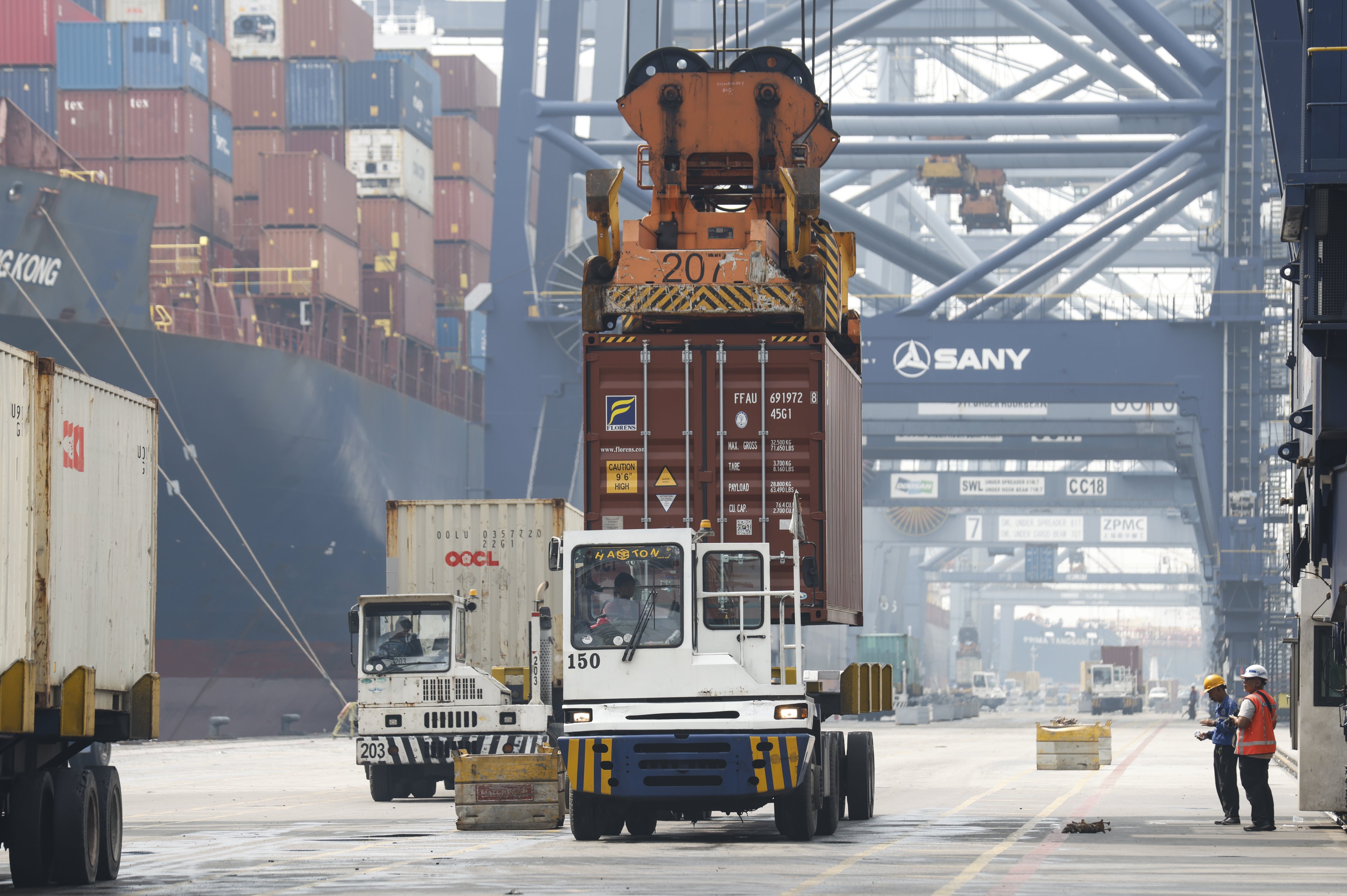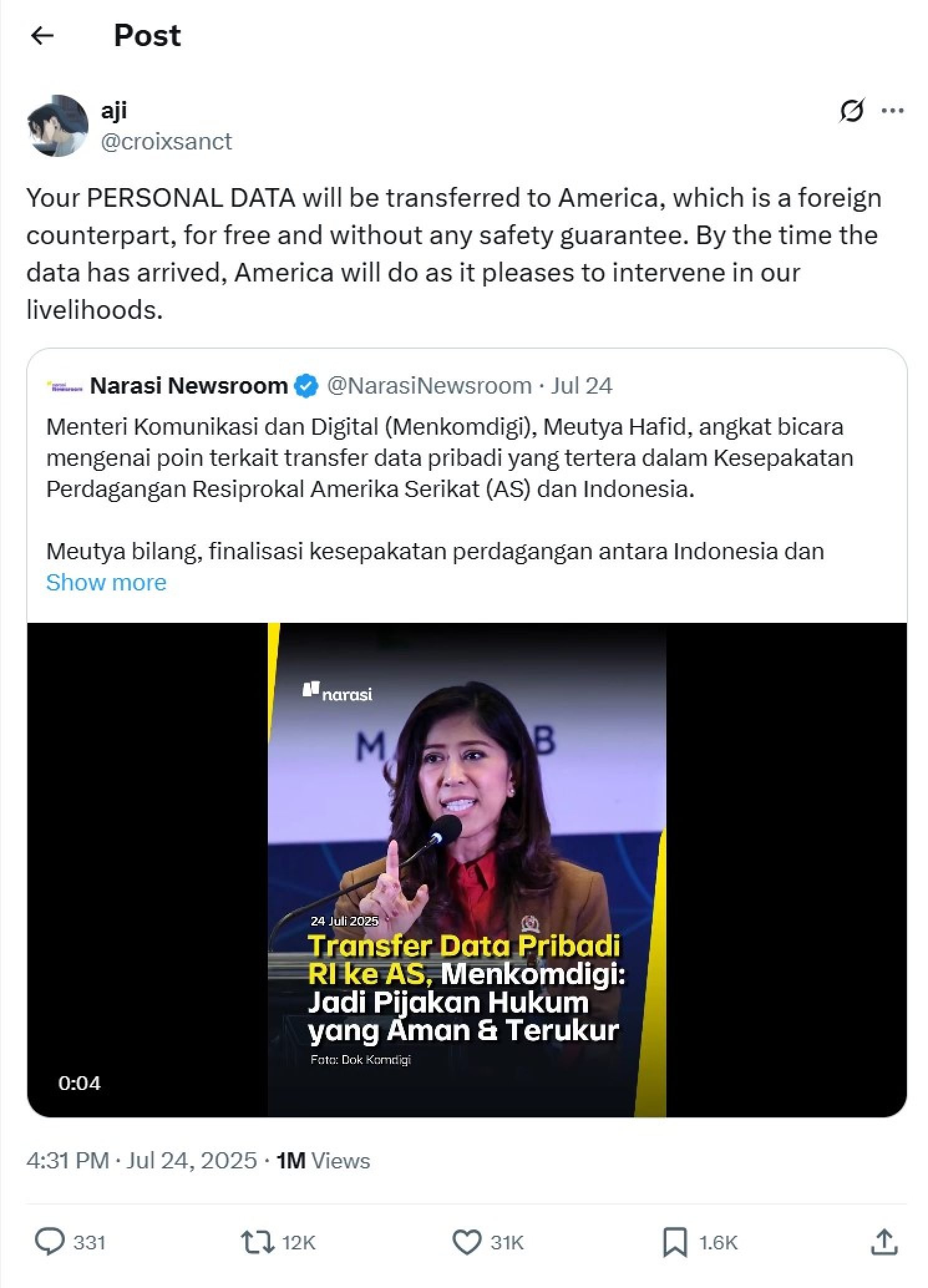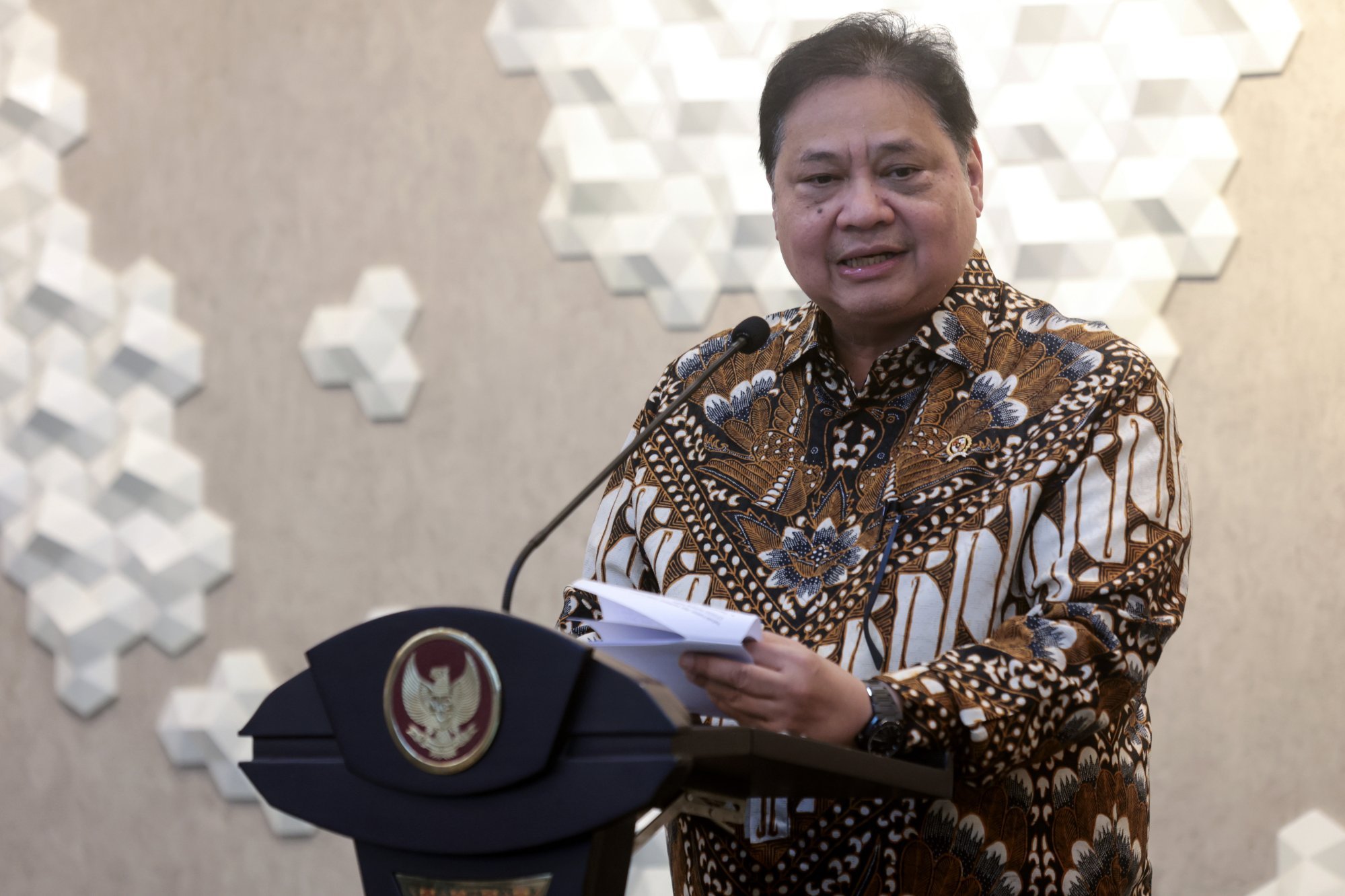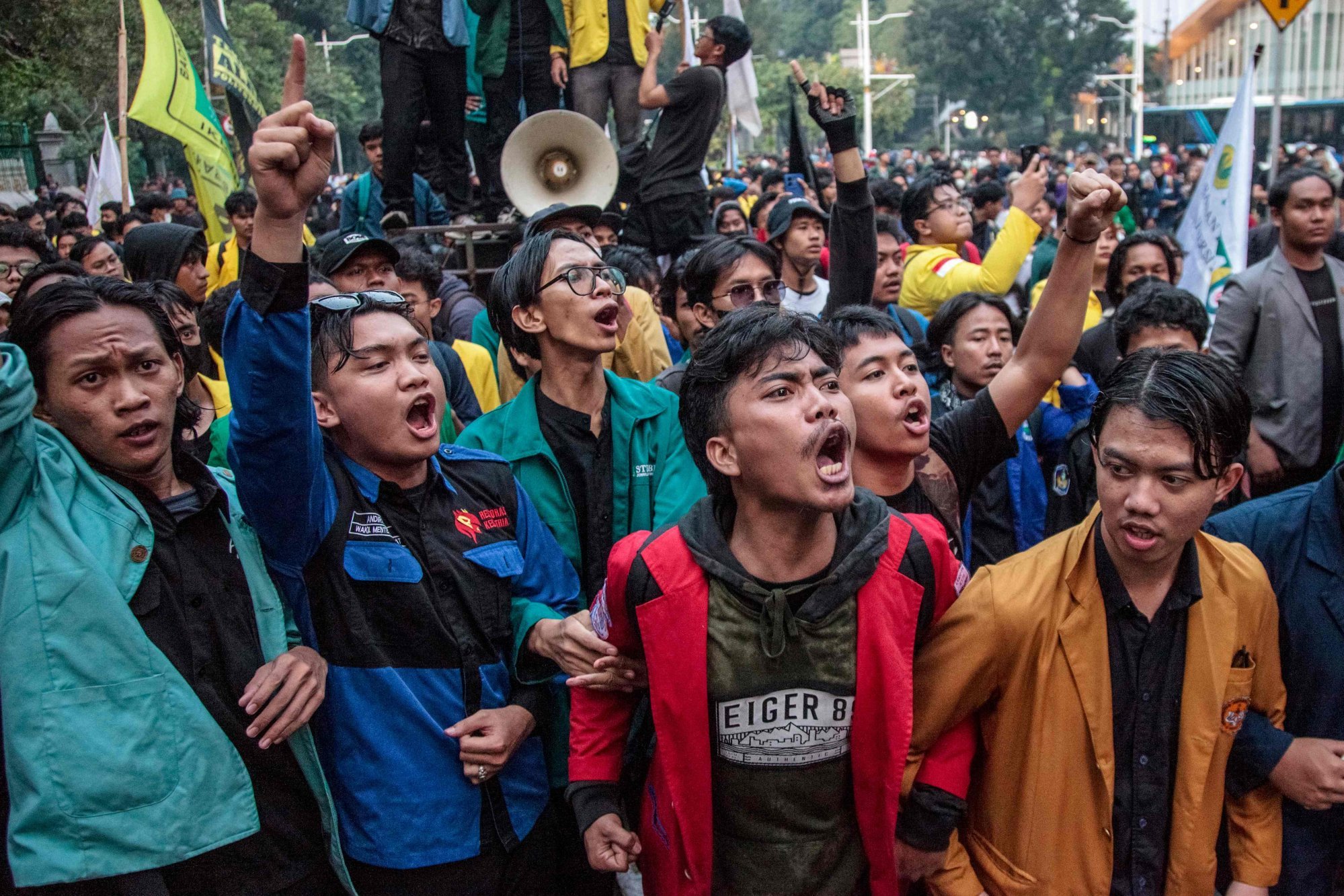Data safety or investment? US trade deal ignites debate in Indonesia
Observers split over whether concessions will help attract investment or risk eroding digital sovereignty and economic self-reliance

A new trade agreement between Indonesia and the United States has triggered heated debate in Jakarta, with critics zeroing in on controversial provisions allowing the transfer of personal data abroad and relaxing local content requirements for US companies.
While officials say the deal is not yet final, observers are split over whether the concessions mark a pragmatic step towards attracting investment or a risky erosion of digital sovereignty and economic self-reliance.
The proposed framework, announced in a White House statement last week, outlines a reciprocal trade deal under which US President Donald Trump agreed to reduce tariffs on Indonesian goods to 19 per cent, lower than the initial 32 per cent tariff announced in April.
Under the agreement, Indonesia conceded on several grounds, including allowing US companies to transfer personal data of Indonesian citizens out of its territory, as well as exempting US companies and originating goods from local content requirements, among others.
“Indonesia will provide certainty regarding the ability to move personal data out of its territory to the United States through recognition of the United States as a country or jurisdiction that provides adequate data protection under Indonesia’s law. American companies have sought these reforms for years,” Washington said in a fact sheet issued on July 22 alongside the agreement.
The White House said both countries would negotiate and finalise the deal “in the coming weeks” before the agreement entered into force.
Sacrificing digital sovereignty?
Jakarta’s agreement to allow transfer of Indonesians’ personal data to the US has been largely met with backlash, as the public and experts question the safety of the procedure.
“Your personal data will be transferred to America, which is a foreign counterpart, for free and without any safety guarantee. By the time the data has arrived, America will do as it pleases to intervene in our livelihoods,” a user said on X, formerly known as Twitter.
Nenden Sekar Arum, executive director at SAFEnet, a Jakarta-based NGO which advocates for digital rights and privacy, told news magazine Tempo that the clause “risks turning personal data [of Indonesians] into a trade commodity”.

Indonesia’s Personal Data Protection Law, passed in 2024, does not “absolutely prohibit the transfer of personal data abroad”, provided the destination country has data protection standards equivalent to or higher than those of Indonesia, or if there is a binding international agreement in place, according to Pratama Persadha, chairman of the Communication and Information System Security Research Centre.
However, he noted that the US “lacks federal data protection laws comparable to the [European Union’s] General Data Protection Regulation”.
Unhandled type: inline-plus-widget {“type”:”inline-plus-widget”}
Wahyudi Djafar, an expert on data privacy with the Catalyst Policy Works think tank, said users of services provided by US tech companies had “actually consented to transferring their personal data to the US”.
The Personal Data Protection Law has not been effectively implemented as Jakarta is yet to establish an agency to ensure oversight of the law, according to Wahyudi.
Both experts urged Jakarta to accelerate the creation of technical regulations for implementing the law, and set up an independent data protection supervisory agency.
Officials have sought to quell public concern, with Coordinating Minister of Economic Affairs Airlangga Hartarto saying last week that 12 US tech companies which had set up data centres in Indonesia were “complying with Indonesia’s regulatory requirements”.
“There’s no government-to-government data exchange. These companies obtain data and obtain consent from each individual [who uses their services],” Airlangga said.

Meutya Hafid, minister of communication and digital affairs, assured that the data transfer would “not be carried out carelessly”.
“The entire process is carried out within the framework of secure and reliable data governance, without sacrificing citizens’ rights,” Meutya said in a statement on July 24.
Local content debate
The looming exemption for US companies to include locally sourced parts in their products has also sparked concerns among some industries that removing the regulation would affect local competitiveness.
“If the local content rule is relaxed, many investors will be less confident in investing in the national medical device industry,” said Randy Teguh, chairman of Indonesian Medical Device Ecosystem Development Association, as cited by news outlet Bisnis.
Under the agreement, medical devices made by US manufacturers will be exempted from “burdensome certification and labelling requirements” as Indonesia will now accept certifications from the US Food and Drug Administration and other marketing authorisations.

Ariyo Irhamna, trade and investment researcher at the Institute for Development of Economics and Finance, said the different treatment accorded to US investors could trigger questions from other foreign investors.
“The government’s credibility will plummet, and Indonesian policies will no longer be credible. The relaxation of local content [rules] for US investors will make investors from other countries renegotiate their [compliance] with the local content policy,” Ariyo said.
The government has not clarified which industries will be exempted from the local content rule as negotiations are still ongoing.
Fithra Faisal Hastiadi, a main expert staff of the presidential communications office, said the local content exemption would boost foreign direct investments from the US, as the rule had affected the market competitiveness of Indonesian-made products.
Ariyo disagreed, noting that simply removing the rule would not be enough to increase investments, as many Indonesian industries lacked technological innovation to boost their capabilities.